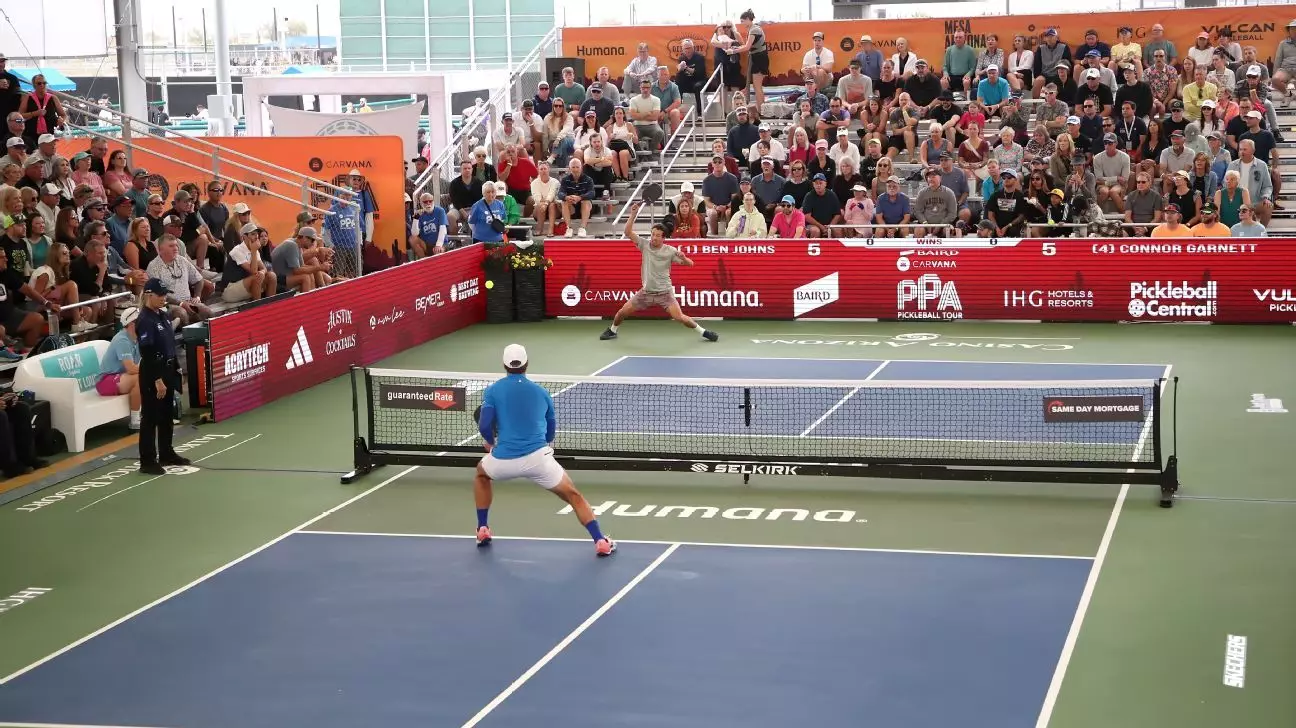The emergence of the World Pickleball Players Association (WPPA) marks a watershed moment in the sport’s evolution, signifying a conscious shift toward athlete empowerment and industry accountability. For the first time, professional pickleball players have taken concerted steps to unify their voices under a structured organization. This move not only reflects a natural progression of the sport’s development but also challenges the traditional dynamics of sports governance where leagues and promoters historically held unchecked power. By establishing the WPPA, players are asserting that their needs—ranging from health and safety to fair compensation—are integral to the sport’s sustainable growth.
This initiative signals more than just a unionization effort; it introduces a paradigm where athletes take ownership of their careers and influence critical aspects of their professional environment. The timing underscores an awareness within the community that collective action is necessary to navigate new opportunities and address longstanding issues. While some skeptics may dismiss this as a mere formality, the authenticity of player-led initiatives increasingly influences how sports are structured today, aligning more closely with athlete rights and responsibilities.
Reforming the Power Dynamics in the Sport
Historically, pick-up sports have operated with minimal formalized structures connecting players’ interests directly to decision-makers. Previous attempts at player councils or advisory groups lacked independence and authority, often falling short of delivering consequential change. The WPPA, however, aims to elevate the player voice by functioning independently from the leagues and sponsors, akin to models seen in other sports like tennis.
The advocacy for transparency and fair treatment, especially around issues like compensation and health protocols, is not trivial. It demonstrates a maturing understanding among athletes that their collective strength can influence policy rather than accept marginal adjustments. The association’s governance, comprising a diverse board of players, indicates a commitment to inclusive and balanced decision-making—an essential step towards cultivating trust and credibility within the sport.
Moreover, the support from entities like Sports Solidarity and parallels drawn from tennis affirm a broader cultural shift. These connections reinforce the role of athlete advocacy as a legitimate and necessary facet of professional sports, especially as the sport grows rapidly and becomes increasingly lucrative. Recognizing pickleball’s rising popularity and the financial incentives involved, the WPPA’s formation underscores a strategic move to safeguard player interests amid commercial expansion.
Challenging the Status Quo with Reasoned Realism
While the advocacy is ambitious, it is tempered by pragmatic considerations. The WPPA is deliberately positioned more as a voice for dialogue rather than a disruptive force—a stance that can foster cooperation rather than hostility. Current classifications of players as independent contractors complicate the push for formal unionization, but the organization seeks to influence standards without threatening existing contractual frameworks.
Much of the initial focus is on manageable reforms—such as modifying ranking systems, improving scheduling, and establishing safety protocols—that have a tangible impact on players’ daily experiences. These issues, while seemingly minor to outsiders, are vital for fostering a fair and professional environment. As Collin Johns notes, the association’s aim is not unreasonable demands but reasonable standards that ensure all players, regardless of rank, are treated equitably.
The broader implications are noteworthy. This move signifies that athletes in emerging sports are increasingly viewing themselves as stakeholders—not just participants. They are asserting their rights and recognizing the power of organized collective action to catalyze meaningful change. As pickleball continues its rapid growth, the establishment of the WPPA could serve as a model for other sports seeking to balance player rights with commercialization.
Personal Reflection: A Bold Step Toward a Player-Centric Future
In my assessment, the creation of the WPPA embodies a vital evolution in sports culture—one where athletes no longer remain passive commodities but become active agents shaping their destinies. It’s an assertion of independence that recognizes players’ contributions as central to the sport’s viability and appeal. While challenges undoubtedly lie ahead—such as maintaining unity across diverse ranks and navigating complex league relationships—the move itself sets a powerful precedent.
The potential for increased transparency and fairness, if managed judiciously, could revolutionize professional pickleball. Players will likely benefit from better working conditions, clearer standards, and a stronger collective voice that keeps the sport aligned with broader athlete rights movements. Embracing this evolution with resolve and strategic collaboration could propel pickleball into a new era defined by athlete empowerment and sustainable growth, ultimately making the sport not just popular but truly player-driven.


Leave a Reply